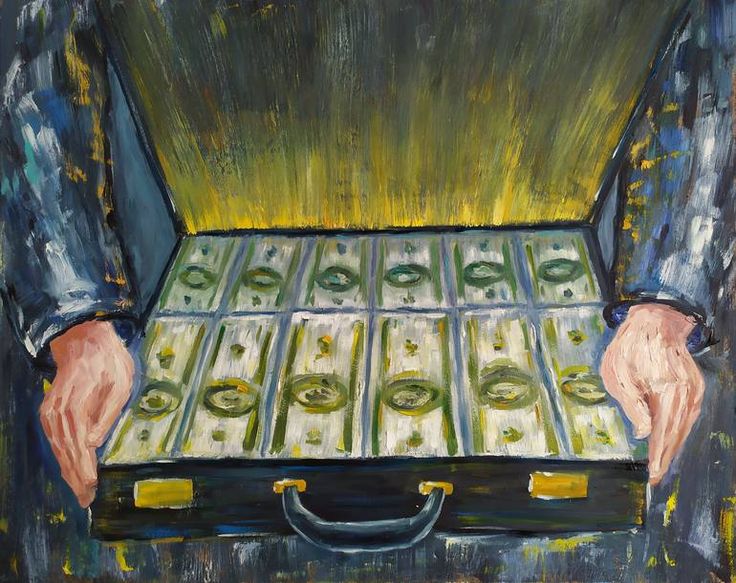Trigger warning: Mentions of Sexual Exploitation and Crime Art work by Kristina Timofeeva
Did you see what I did with the title 😏 ????? Cause the book had talk of drugs and the experience of reading it was…well..almost a surreal high?????? No, just me? ok…
Money is just the same as drugs: what’s fundamental is its possession, knowing it’s there, touching it, checking it’s still in the cupboard.
Piglia, 30
Let’s start with a question: What even is money beyond the socially-constructed value we put on it?
Isn’t it kind of sad when you think about it? How we as people feel the need to protect paper bills before each other?
This week’s novel was Money to Burn by Ricardo Piglia, and in all honesty, I kind of liked it??? I was lowkey shocked to have read that so many others disliked the book. Was I the only who was intrigued by this action packed novel? Or perhaps the subtle philosophical narratives imbued within the pages? (more on this later). Perhaps the many uncomfortable events and phenomenons is what facilitated the completely understandable distaste. But I feel like the novel and its characters serves as a commentary towards a plethora of narratives: empathy, money, society, explotations, drugs, etc. I feel like the uncomfortable aspect of the novel was what made it more impactful to me.
Where do I even start? I guess let’s start at the beginning. To give a quick TLDR, Money to Burn tells the story of a gang who raided and robbed a bank in downtown Buenos Aires. They escaped with a lot of money, only to find themselves surrounded by police weeks later. The most intriguing aspect of this novel, however, wasn’t the plot. For me, the most intriguing part were the characters and their dynamics.
Obviously, the characters are no saints. They are violent, dangerous criminals who have done rather unspeakable things. I think it’s a given that if you have a decently working moral compass, you probably wouldn’t stand for what they were doing either. However, after understanding a bit of their background, I do understand the men to a certain agree. I mean, their backgrounds include varied degrees of violence, poverty, and even assault. Their lives are, in plain, tragic stories. Does that justify their crimes, absolutely not, but does it give us a perspective into why they are the way they are? Perhaps. Their past isn’t an excuse, but an explanation, and I think that’s something Piglia wanted to take a stab at. I think he wanted us to think more in-depth about why people do what they do and why they are what they are. For some cases, people are just born evil. But in other cases, such as in this novel, people are made evil. Is it bad to feel bad for them? Is it bad to extend our empathy to them?
There were moments in between the hectic chaos that were pockets that I realised that they too were human.
“They gazed at one another; the Kid was dying. The Blond Gaucho wiped his face and tried not to cry.”
Piglia, pg 181
Rip my heart out and stomp at it while you’re at it. I mean, I just read a novel about supposedly “evil” men. Yet here they were, having a real heart-to-heart before the Kid died.
If anything, this book made me question myself! Am I a bad person for sympathizing these people? Am I messed up in the head? Like, as I’m writing this, I’m saying I feel sympathetic for men who were complete pigs and assholes, ESPECIALLY towards women. Which leads me into my next tangent: the exploration of women in this novel.
It’s no mystery I’m very passionate about women in whatever form they are presented, ESPECIALLY in literature. I noted this book was published in 2003, so this novel was written in a relatively “modern” perspective. (Though, take with a grain of salt the book is loosely based on events in 1965!!!!!!). And so I was absolute disgusted with the way women were portrayed in this novel. More specifically, the character Blanca Galeano. Blanca is a victim of sexual exploitation by the gang of men.
“ She began living with him and the guys from the gang followed her with their eyes like starving dogs. Once on some wasteland, she had seen a cage of dogs dying of hunger, all chained up, who entwined and plaited themselves around one another, then threw themselves hungrily on whatever appeared, and these guys gave her exactly the same impression.”
Piglia, pg 15
LIKE WHATTTTT?????????

What was even more disgusting to me was the fact that she is LITERALLY A CHILD!!!!! She’s literally only 15 years-old in her third year of secondary school. SECONDARY SCHOOL!!!!! GIRL THAT’S HIGH SCHOOL!!!!!! These men were so vulgar to read about. I hate how Blanca was literally a character meant to further explore the characters of the other men such as Gaucho. Like, was I the only one who felt like she wasn’t even her own character? Like she was a plot device, which yea, I get that some side characters are meant to be “plot devices” to help the main characters, but Blanca, being one of the only female characters of the novel, was portrayed as an object. She was a “thing”, a bone being fed to the “cage of dogs”. Perhaps there was a “reason” she was portrayed as such. I find this novel to be more about the characters than it is the plot, so perhaps Blanca being seen and treated the way she is is supposed to mean something. But at the same time, thats BS. And if that was the reason, then that’s messed up. Like I literally have no words beyond I am disgusted, I am enraged, I am conflicted.
Random thought: perhaps this isn’t even Piglia’s thoughts on women, in fact, I doubt it is. I mean, this novel is supposedly based on true events. Therefore, put two and two together, Piglia isn’t telling us how he feels about women, moreso how women were viewed by the gang. But also, I wanted to note that lowkey, doesn’t it seem a bit dramanticized? Like I know it’s based off of true events, but how much of it is actually “true”? I briefly skimmed the epilogue, and Piglia says that his sources are viable. He’s conducted interviews, gathered info via records, etc so you would assume his exploration of the heist in Money to Burn would pay hommage (if you can call it that) to the true events. But at the same time, we get a glimpse of the inner thoughts of the Kid, of Gaucho, of most characters. Like did Piglia ask them personally how they felt at that time? But the Kid is dead???? So how did he even ask? It’s giving “just trust me, bro” typa evidence. I guess what I’m trying to say is that just because it’s based on “true events” doesn’t mean everything is authentic. I mean, people dramanticize everything for the heck of it. Photoshop???????? It’s reality, but with ✨spice✨ It’s to make things more consumable, more intriguing, more impactful. So this is me justifying that perhaps, there is hope left in humanity and women and young girls aren’t seen as bones to a cage of dogs…..pls and thank youuuuuuuu ◡̈!!!!!!!
Lastly, I wanted to comment on this idea of money. It goes back to my first question: what even is money beyond the value we put on it. The scene were people stood paralyzed, watching the ashes of money fall like snow, kind of invoked something in me. Like, it made me wonder. People were watching the scene go down with the gang and the police like it was a movie of some sort. Like it was entertainment. Yet when the sky rained the ashes of money, they get angry? Why have we put more value on money than we do our neighbors? Of course, the obvious answer is: it’s because money is the source of everything we need. I’d argue that money does buy happiness but it’s literally one of the only avenues to get most (not all) of everything you need in life. A good education, a good house, a good lifestyle to support yourself and the things you need. But when did it become that we valued the thing that bought us a secure life over the people that made life secure? Does that even make sense? This is a question for all them sociology majors so if any of y’all are here, I’d love a little educational moment with y’all. I think the reaction goes beyond that though…or kinda, not really. I think the reaction highlights the narrative of poverty, desperation, a sort of “injustice” in the sense that all of that money could have been a saving grace to someone but it was all just burned away. I asked my sister about it, and she made a good point that if a billionaire had $30,000 burnt to a crisp, they wouldn’t even bat an eye (probably). It’s because such a sum would be miniscule. But to someone else living in poverty, that $30,000 would be a whole new life. Perhaps it’s a commentary of the socioeconomic situation in Argentina. Perhaps it’s a commentary on how the value of things are subjective to privilege. Perhaps it’s all of it…I don’t even know what I’m saying at this point.
Okay this will actually be my last point, it’s about the duality of being empathetic or not being empathetic. I mean, my first and second paragraphs literally contradict each other. “These men are assholes…. But their past sucked so……………” Does the backgroun justify the crime? If the past sucked bad enough, then does that justify the crime? For me, my answer is no. As I said before, the past/background serves as an explanation, but not an excuse. I feel like the story drilled in me a lot of conflicted emotions that I have no idea the names of. Sympathy vs Anger. A lot of contradicting emotions. Perhaps that’s why many didn’t like the book. I mean, for me personally, there were moments of the novel I was hella confused about BECAUSE of these confusing emotions. But then again, a book isn’t bad because it made you mad or enraged. If anything, it makes it better becaus it makes you feel something.
Okay, I feel like I’m yapping. There’s a lot of other things I’d love to comment on: the relationship between the Kid and Gaucho especially, but I feel like after reading all of everyone else’s blogs, there’s nothing I can comment on that hasn’t already been said about. So here is my question.
Does background justify the crime? Is it bad to me empathetic towards the men? Or even, why do we put more intrinsic value on money than the peoplein our lives?
With Love Always,
S ˚ʚ♡ɞ˚

Leave a comment